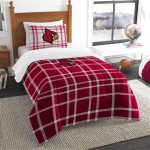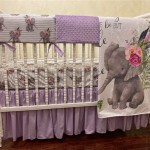Understanding Bedding Plants
Bedding plants are a vital part of any garden, adding vibrant color and diversity to outdoor spaces. They are designed for their ornamental value and are typically used to create eye-catching displays in flower beds, hanging baskets, and containers. To fully appreciate the beauty and functionality of bedding plants, it is essential to understand their defining characteristics:
1. Compact Form
Bedding plants are typically compact and bushy in form, making them ideal for creating dense, colorful displays in limited spaces. Their growth habit is often upright or mounding, allowing them to fill in gaps and create a cohesive visual impact.
2. Profuse Flowering
The most distinctive feature of bedding plants is their ability to produce an abundance of flowers over a long period. They are bred to bloom profusely, often from early spring until late fall, ensuring a continuous display of color and beauty.
3. Low Maintenance
Bedding plants are generally low maintenance and easy to care for. They require regular watering and fertilization, but are tolerant of a wide range of soil types and light conditions. This makes them an excellent choice for gardeners who want to enjoy beautiful blooms without spending excessive time on upkeep.
4. Seasonal Display
Bedding plants are typically classified as either annuals or tender perennials. Annuals complete their lifecycle in a single growing season, producing flowers and seeds before dying back at the end of the year. Tender perennials, on the other hand, survive for multiple seasons in warmer climates, but may need to be protected from harsh winter conditions.
5. Diverse Color and Variety
Bedding plants come in a vast array of colors, shapes, and textures. From vibrant reds and yellows to delicate blues and purples, there is a bedding plant to complement any color scheme or garden style. The diversity of available varieties allows gardeners to create unique and personalized displays that reflect their own tastes and preferences.
6. Mass Appeal
One of the most significant aspects of bedding plants is their mass appeal. They are widely used in both residential and commercial landscapes, from private gardens to public parks and urban areas. Their ability to create instant impact and add visual interest makes them a staple for landscapers and gardeners alike.
7. Seasonal Interest
Bedding plants are not only visually appealing, but also serve a practical purpose. They help to extend the season of interest in gardens, providing color and beauty during the spring, summer, and fall. By choosing a mix of early-, mid-, and late-season blooming varieties, gardeners can ensure that their outdoor spaces are vibrant and inviting throughout the year.
In conclusion, bedding plants are a versatile and essential part of any garden. Their compact form, profuse flowering, low maintenance, seasonal display, diverse color and variety, mass appeal, and seasonal interest make them an ideal choice for adding vibrancy, color, and beauty to outdoor spaces. Whether used in flower beds, hanging baskets, or containers, bedding plants enhance the visual appeal of any landscape and bring joy to gardeners and outdoor enthusiasts alike.

Bedding Plant Definition And Meaning Collins English Dictionary

Bedding Horticulture Wikipedia

Edging Groundwork And Dot Plants Edinburgh Garden School

Guide To Winter Bedding Plants Gardening Tips From Dobies Experts

Guide To Winter Bedding Plants Gardening Tips From Dobies Experts

Guide To Winter Bedding Plants Gardening Tips From Dobies Experts

Guide To Winter Bedding Plants Gardening Tips From Dobies Experts

Guide To Winter Bedding Plants Gardening Tips From Dobies Experts

What Are Plug Plants

Bedding Plants An Overview Sciencedirect Topics
Related Posts








